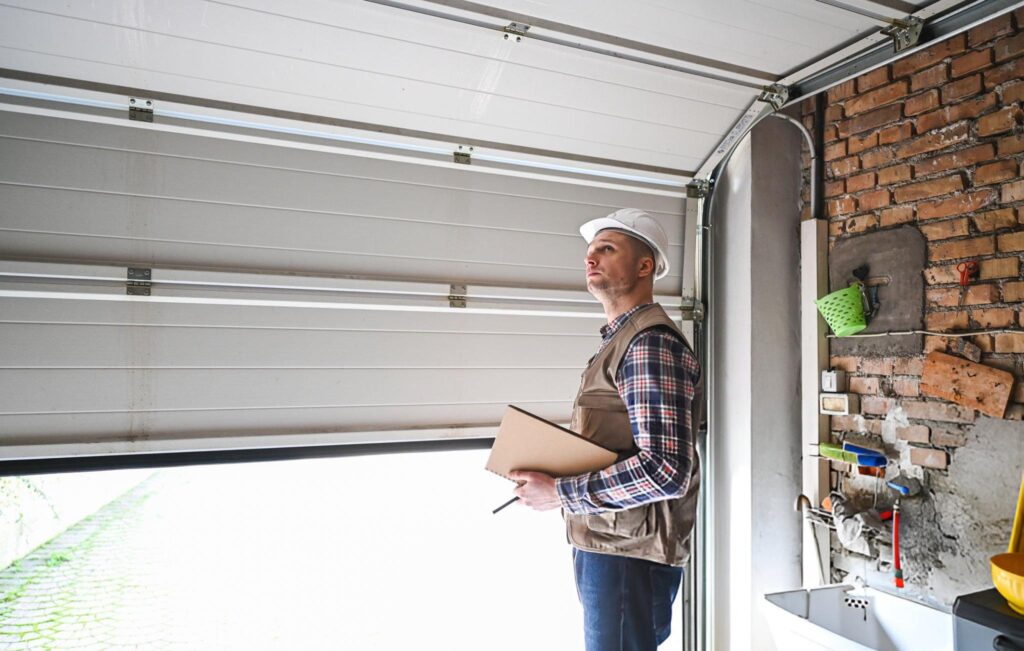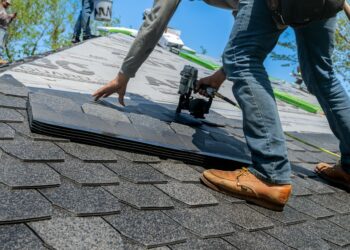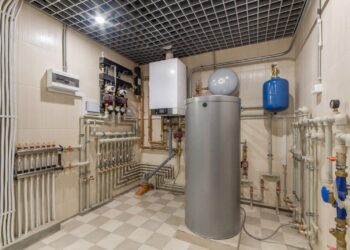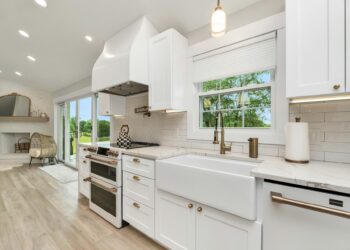
Making the decision between repairing your garage door and opting for a full replacement is often more challenging than it seems. A garage door is a significant part of your home’s safety, convenience, and curb appeal, which makes its condition an important consideration. Ignoring issues can lead to long-term costs, while replacing them too early can result in unnecessary expenses. Understanding how to evaluate the severity of problems, the age of the door, and the benefits of new technology can help you make an informed decision. We will explore key factors to consider, enabling you to determine whether repair or replacement is the better option for your home.
Key Factors to Help Decide Between Repair and Replacement
- Assessing the Age of Your Garage Door
The age of your garage door is one of the most critical factors in determining whether repair or replacement is the best course of action. Most garage doors are designed to last between 15 to 30 years, depending on the materials used, the level of maintenance, and how frequently they are operated. If your door is relatively new and has minimal problems, a garage door repair service in Winter Park FL may be all that’s required to restore it to good working condition. On the other hand, if your door is nearing or past its expected lifespan, even small issues may signal that replacement is a smarter long-term investment. Repairs on an older door can become a recurring expense, often costing more in the long run than installing a new, reliable system. Evaluating age not only gives insight into durability but also helps you decide whether the door’s performance still meets the needs of modern usage and safety standards.
- Considering the Extent of Damage
The severity of the damage to your garage door should heavily influence your decision. Minor issues, such as a broken spring, worn-out rollers, or a misaligned track, can often be resolved through simple repairs without requiring a full replacement. However, if the door has significant structural problems, such as warped panels, extensive rust, or large dents that affect its balance and operation, replacement may be a more practical option. Structural issues often compromise not just appearance but also safety, as a damaged door may fail to close properly or place extra strain on the opener. Additionally, if multiple components are failing simultaneously, piecing together repairs can be costly and inefficient. A replacement in such cases ensures that all parts function together seamlessly and that you won’t be dealing with ongoing breakdowns that disrupt your daily life. Carefully weighing the extent of the damage will provide clarity on which path offers better value and reliability.
- Evaluating Safety and Security Concerns
Garage doors are more than just an entryway; they play a critical role in home safety and security. If your current door poses risks, such as failing sensors, unreliable auto-reverse features, or difficulty in locking securely, then replacement may be a necessity rather than an option. Safety standards for garage doors have evolved, and newer models often come equipped with advanced features that reduce the risk of accidents and enhance protection against unauthorized access. While some safety issues can be addressed through repairs, there are instances where the existing design fails to meet modern requirements.
For instance, an older opener without rolling code technology may make your home more vulnerable to break-ins. In such cases, upgrading to a new system ensures peace of mind and compliance with current safety expectations. Balancing security and safety with cost considerations is essential in determining whether a repair is sufficient or if replacement is the more responsible choice.
- Analyzing Costs and Long-Term Value
One of the most practical ways to decide between repair and replacement is to analyze costs not only in the short term but also over the long term. A repair may seem affordable upfront, but if you find yourself scheduling frequent service calls, the cumulative costs can quickly outweigh the price of installing a new door. Replacement often brings long-term savings, as modern doors are designed for durability, energy efficiency, and lower maintenance needs. Additionally, a new garage door can increase the overall value of your property and boost curb appeal, making it a worthwhile investment if you plan to sell your home in the future. Repairs are best reserved for isolated, minor issues that can restore functionality without recurring expenses. By weighing both immediate costs and long-term benefits, you can avoid the trap of short-term fixes that ultimately cost more than a replacement down the line.
Choosing between repairing your garage door and opting for a full replacement requires balancing practicality, safety, aesthetics, and long-term value. Repairs are a great solution for isolated issues on a relatively young or lightly used door, restoring functionality without unnecessary expenses. However, when damage is widespread, safety is compromised, or the door has reached the end of its lifespan, replacement often proves to be the wiser investment. Ultimately, the choice depends on your priorities, whether they are financial savings, improved convenience, or enhanced curb appeal. By carefully weighing these elements, you can move forward confidently, knowing your decision supports both the performance and longevity of your garage door while aligning with your household’s needs.
When deciding between repair and replacement, consider the age and condition of your garage door. If your door is relatively new and the issues are minor, opting for repair might be more cost-effective. However, if your door is older and frequently malfunctions, replacement could be the better long-term solution. For those in the Vancouver area, seeking professional advice can be invaluable. There are excellent repair services for garage doors in Vancouver that can assess your situation and provide guidance on whether repair or replacement is the best course of action. This ensures that your garage door remains functional and secure, enhancing the overall safety of your home.











